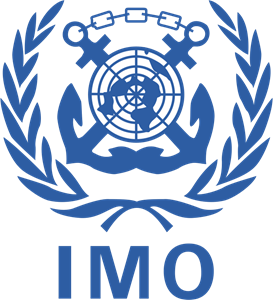
An Intensive 5-day Training Course
International Maritime Dangerous Goods Training : Understanding the Purpose of the IMDG code
Awareness & Familiarization in Handling Hazardous & Dangerous Materials in the Maritime Industry
Scheduled Dates
Classroom
| 03 - 07 Jun 2024 | Dubai - UAE | $5,950 | RESERVE A SEAT |
| 07 - 11 Oct 2024 | Dubai - UAE | $5,950 | RESERVE A SEAT |
| 09 - 13 Dec 2024 | Pretoria - South Africa | $5,950 | RESERVE A SEAT |
Are the scheduled dates matching with your needs?
We provide a wider range of training options. Tailored and customized, we can deliver your organization’s training needs anytime, anywhere.
Why Choose this Training Course?
Learn how to apply appropriate safety precautions and understand the legal requirements and operational restrictions involved in shipping dangerous goods by vessel transport. Gain a detailed understanding of International Maritime Dangerous Good (IMDG) Code regulations and practical knowledge of Code requirements, in relation to classification, packaging, vehicle packing and vessel stowage.
Amendment 39-18 of the Code is mandatory as from 1 January 2020 but may be applied by Administrations in whole or in part on a voluntary basis from 1 January 2019.
The IMDG training rules are recommended for shore-based personnel. However, vessel carriers often require compliance with them as a condition of accepting your shipments. These rules apply in addition to the US DOT Hazardous Materials Regulations, which require Hazmat employees to be trained on all applicable modal rules.
This PetroKnowledge Maritime dangerous goods training course helps promote the safety of workers, the public and the environment, since using improper procedures when shipping these materials can result in serious harm. Failure to comply with the IMDG Code can result in civil penalties, rejected shipments, incidents in transit, and carrier blacklisting, so it’s important for employees to get the training and certification they need.
This PetroKnowledge training course will highlight:
- Introduction to the IMDG Code
- Overview of the IMDG Code general provisions
- Overview of dangerous goods classification and identification provisions
- Overview of packing requirements
- In-depth training on package marking and labelling requirements
- In-depth training on CTU marking and placarding requirements
- Overview of documentation requirements
- Overview of stowage requirements
What are the Goals?
This PetroKnowledge training course on Dangerous Goods aims to help participants to develop the following critical objectives:
- Use IMDG and complete the necessary dangerous goods transport documents
- Apply the regulations to identify, pack, mark, label and document dangerous goods
It is designed for personnel with no specific dangerous goods transport function(s) who need a general appreciation of the regulations. The programme is split into the following sections:
- Course scope and objectives
- Dangerous goods transport legislation
- Classification and identification
- Consignment and transport procedures
- The journey rules – operational considerations
- Emergency response issues
Who is this Training Course for?
This PetroKnowledge Dangerous Goods training course is suitable for a wide range of professionals, but will be particularly beneficial to:
- Cargo operations and port managers responsible for the safe transport of dangerous goods shipments
- Shippers, cargo agents, consolidators, freight forwarders and other agencies involved in the transport of dangerous goods
- Instructional designers and instructors responsible for dangerous goods training
- Freight Forwarding Agents
- Customs Clearing Agents
- Forwarding Clerks
- Sole Agents
- Free Agents
- Cargo Handlers
- Cargo Packers
- Customs officials
How will this Training Course be Presented?
This PetroKnowledge training course is conducted in a classroom setting. Examples and video clips will be used to aid the learning and understanding of the subject matters. Participants will also take part in group classroom exercises to reinforce their learning experience. Each participant will receive a set of course materials. There will also be pre-course as well as post-course training assessment tests.
Organisational Impact
In addition to the professional development of staff, the organisation should be able to prioritise resources to demonstrate and implement mandatory requirements as per the Code.
Other Benefits include:
- Compliance - meets the mandatory training requirements in the IMDG Code for all those involved in the transport of dangerous goods by sea
- Cost-effective: typically, a fraction of expensive classroom time and less disruptive than absence from work
- Safety - produced by dangerous goods transport specialists
- Efficiency - delivers consistent training standards across global operations, especially relevant to corporate quality assurance programs
- Their understanding of hazardous chemical activities
- Recognition of the essential controls and safeguards to be applied for each specific hazardous chemical storage
- Observing the principles and the requirements for the safe control of work
- Identifying unsafe acts or conditions in construction work activities and being pro-active in their correction
- Understanding, promoting and actively participating in safety programs
- Safety awareness of personnel
Personal Impact
Delegates will be able to gain or improve their knowledge and recognition of chemical hazards, essential safeguards and controls for hazardous material handling including:
- Greater confidence and assurance when exposed to hazardous work activities
- Identification of unsafe acts and conditions and taking or communicating actions
- Greater awareness on how to keep themselves and work colleagues safe
- Added ability to promote and participate in safety initiatives
- Provide improved feedback to their organization on the safety conditions at a site or yard
- Be recognized by their employer for their enhanced safety knowledge and understanding for future site deployments
Daily Agenda
Day One: Introduction to Dangerous Goods
- Background and purpose of the regulations
- Training and certification
- Enforcement
- Definition of terms
- Responsibilities of shipper, carriers and receivers
- Training and Certification Requirements
- Responsibilities while having charge, care, and control of a dangerous goods shipment
Day Two: Amendment 39-18 of the Code
- Volume 1 (parts 1, 2, 4, 5, 6 and 7 of the Code) contains sections on:
-
- General provisions, definitions and training
- Classification
- Packing and tank provisions
- Consignment procedures
- Construction and testing of packaging, IBCs, large packaging, portable tanks, MEGCs and road tank vehicles
- Transport operations
- Volume 1 (parts 1, 2, 4, 5, 6 and 7 of the Code) contains sections on:
-
- General provisions, definitions and training
- Classification
- Packing and tank provisions
- Consignment procedures
- Construction and testing of packaging, IBCs, large packaging, portable tanks, MEGCs and road tank vehicles
- Transport operations
- Volume 2 contains part 3 (Dangerous Goods List, special provisions and exceptions), appendices A and B (generic and N.O.S. Proper Shipping Names, and glossary of terms) and an index.
Day Three: Classification
- 9 classes of dangerous goods
- Class Divisions
- Primary and Subsidiary Classification
- Packing Groups
- Special Divisions
- Divisions, packing groups, subsidiary classification, special provisions
- Shipping names, UN numbers
Day Four: Documentation
- Information required on all shipping documents
- Safety marking
- Location and distribution of documents
- Requirements for Shipping Documentation Information
- Empty or Residue Containing/Packaging Requirements
Day Five: Waste and Pollution
- Overview of Hazardous Waste Manifest
- Retention of documents
- Spill Reporting
- Marine pollutants
- Waste manifests/movement document
Certificate
- On successful completion of this Training Course / Online Training Course, a PetroKnowledge Certificate / E-Certificate will be awarded to the delegates.
Accreditation

With the vast and in-depth coverage of the Oil & Gas and Petroleum Industry, it is essential that International Codes and Standards are in place to preserve uniform operational practices across all organisations worldwide. In line with this, many international organisations have published several inspection codes and standards.
In order for Oil & Gas professionals to remain abreast in the innovations in technology and with the new & revised inspection methodologies and best practices, PetroKnowledge is pleased to offer International Maritime Organisation (IMO) training courses and seminars, that focuses on the understanding of the code objectives, intents, stated and implied requirements, as well as the mandatory, recommended and optional stipulations. The training courses also aim to impart the necessary knowledge and skills to prepare the participants before taking the required examinations and certifications.
One of the key areas where PetroKnowledge offers IMO training courses is oil spill management and response, in compliance with the Oil Pollution Preparedness, Response and Co-operation (OPRC) Convention and IMO guidelines. Our IMO OPRC Level 1, Level 2 and Level 3 training courses on oil spill management and response cover various topics, such as detecting and monitoring oil spills, the use of oil spill response equipment, and developing oil spill contingency plans.
By equipping maritime professionals with the skills and knowledge necessary to respond effectively to oil spills, PetroKnowledge helps to minimize the impact of oil spills on the marine environment and protect the livelihoods of those who depend on it.
Other Training Courses You Might Be Interested In
Frequently Asked Questions
- To register online through our website, please click “Enroll Now” on the course page, complete and submit the form. A confirmation e-mail and instructions will be sent to the participant’s e-mail.
- You may also get in touch with our Registration Team on
+971 50 981 7386 | +971 2 557 7389 or send an email to reg@petroknowledge.com
- Payments can be made in USD or UAE local currency AED (Arab Emirates Dirhams) either by Bank Transfer or by Credit Card. Our Bank Account details will be provided on the invoice.
- Course fees are payable upon booking unless a valid, authorized Purchase Order is provided and accepted.
- Invoices will be sent via email/courier to the ID/name and address provided.
- The course fee shall be settled prior to course start date. Corporate payments with existing payment policy shall be relayed to us in advance.
Upon successful registration online, enrolment on the respective training course will be confirmed by Registration Team by e-mail along with the invoice and joining instruction.
For corporate fees and group registration, please send your query to info@petroknowledge.com.
